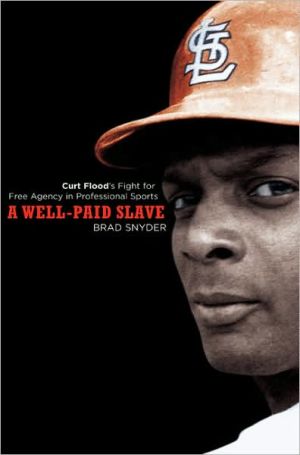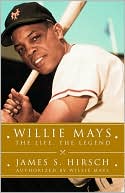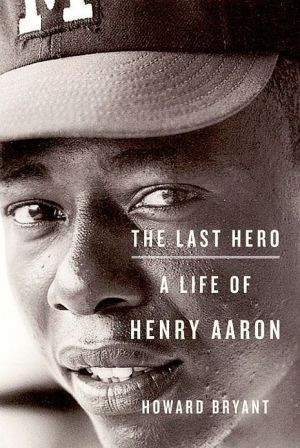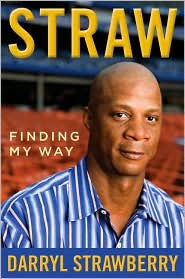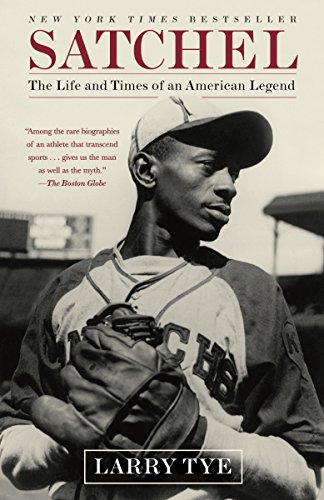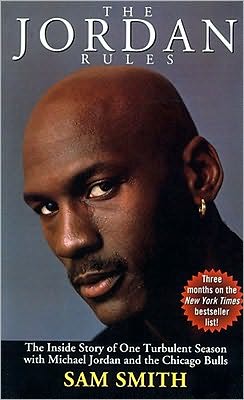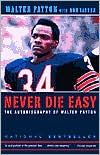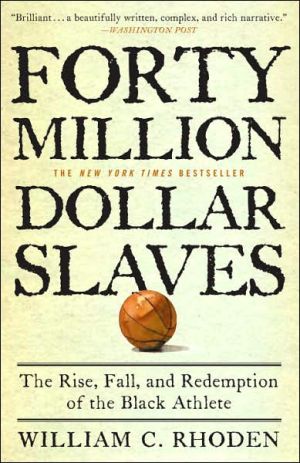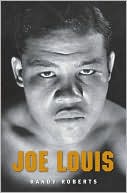A Well-Paid Slave: Curt Flood's Fight for Free Agency in Professional Sports
After the 1969 season, the St. Louis Cardinals traded their star center fielder, Curt Flood, to the Philadelphia Phillies, setting off a chain of events that would change professional sports forever. At the time there were no free agents, no no-trade clauses. When a player was traded, he had to report to his new team or retire. Unwilling to leave St. Louis and influenced by the civil rights movement, Flood chose to sue Major League Baseball for his freedom. His case reached the Supreme Court,...
Search in google:
After the 1969 season, the St. Louis Cardinals traded their star center fielder, Curt Flood, to the Philadelphia Phillies, setting off a chain of events that would change professional sports forever. At the time there were no free agents, no no-trade clauses. When a player was traded, he had to report to his new team or retire. Unwilling to leave St. Louis and influenced by the civil rights movement, Flood chose to sue Major League Baseball for his freedom. His case reached the Supreme Court, where Flood ultimately lost. But by challenging the system, he created an atmosphere in which, just three years later, free agency became a reality. Flood's decision cost him his career, but as this dramatic chronicle makes clear, his influence on sports history puts him in a league with Jackie Robinson and Muhammad Ali.The New York Times - David MargolickThe author of Beyond the Shadow of the Senators: The Untold Story of the Homestead Grays and the Integration of Baseball, Snyder is a sure-handed and meticulous guide. He knows baseball and writes about the law engagingly and clearly…Generations of ballplayers—Curt Flood's children—have never honored him properly. But with his fine book, Brad Snyder surely has.
\ From Barnes & NobleIt wasn't just that he hated Philadelphia; All-Star center fielder Curt Flood wanted to stay in St. Louis, the town he loved. When the Cardinals traded him to the Phillies in 1969, the independent-minded Flood sued Major League Baseball, seeking to invalidate baseball's reserve clause, which bound players to a team for life. The fleet-footed outfielder pursued the case ultimately to the United States Supreme Court, where he lost by a 5-3 vote. The decision cost Flood his career and his chance to join baseball's Hall of Fame. Ironically, his unsuccessful suit paved the way for the eventual demise of this oppressive rule and the advent of free agency. Brad Synder's A Well-Paid Slave places Flood's fight within the context of the civil rights movement and other contemporary events. A biography of a worthy successor to Jackie Robinson.\ \ \ \ \ Bruce SchoenfeldWriting with dispatch and grace, [Snyder] places Flood's challenge to baseball squarely where it belongs, as the final radical act of the 1960s civil rights movement. Self-educated, Flood had read far more than most players, managed to integrate his neighborhood, occasionally visited Mississippi and other flash points, but otherwise was forced by his profession to remain far from the fray. On the day of Martin Luther King Jr.'s "I Have a Dream" speech, he was playing center field in San Francisco. "I should be there instead of here," he said.\ — The Washington Post\ \ \ David MargolickThe author of Beyond the Shadow of the Senators: The Untold Story of the Homestead Grays and the Integration of Baseball, Snyder is a sure-handed and meticulous guide. He knows baseball and writes about the law engagingly and clearly…Generations of ballplayers—Curt Flood's children—have never honored him properly. But with his fine book, Brad Snyder surely has.\ —The New York Times\ \ \ \ \ Publishers WeeklySnyder, a lawyer and baseball writer, gives an account of St. Louis Cardinals outfielder Curt Flood's failed though influential suit against Major League Baseball, offering both a sturdy revision of Flood's biography and a polemical defense of the pro-player fight of which Flood was a part. Benefiting from a lawyer's pen, the intricacies of the terms "reserve clause" (which bound players "to their teams for life") and "baseball's anti-trust exemption" are quickly and clearly explained, as the world of 1960s Major League Baseball is brought to life. Before "free agency," players had few rights; after the 1969 season Flood fought being traded to Philadelphia, taking his battle to the Supreme Court. While the narrative drags at points, the stories of those central to Flood's case (like Marvin Miller, director of the Player's Association, and Arthur Goldberg, Flood's chief lawyer) are vividly rendered. Most compelling, however, is the portrait of Flood's humble upbringing (in working-class Oakland) and the racism he experienced during his early years on the field ("name-calling, segregated facilities, and second-class citizenship"). This account both serves to explain why Flood was "serious about sacrificing his playing career to sue baseball" and helps reposition Flood as a successor to Jackie Robinson's "lifelong battle against injustice." (Oct.) Copyright 2006 Reed Business Information.\ \ \ \ \ Kirkus ReviewsA readable study of baseball's bad old days, when owners kept players on short leashes and superstars made only $100,000. When the Cardinals traded Curt Flood to the Phillies in 1969, he didn't want to go; in a time of black civil-rights activism and considerable tension, he likened the swap to a slave auction. There was small support in the baseball world; when Flood filed suit against the Cards ownership, players such as Carl Yastrzemski accused him of trying to ruin the game, while, as attorney and sports enthusiast Snyder notes, the fans "lacked sympathy for . . . athletes perceived to be spoiled and overpaid, rather than subjugated and oppressed." Flood did not help matters when he insisted that a well-paid slave was still a slave, and the trade was not undeserved. Flood spent much of his free time drinking, and his performance in the 1968 World Series was maddening: An error he made in the final game cost the Cards the championship. Still, Flood was a man of some integrity, even if the portraits for which the former art student was richly commissioned were painted by someone else and merely signed by him. He accepted responsibility for the loss of that crucial game, and, insisting that he was acting on behalf of all players, he fought against the hated reserve clause, which in essence gave owners unilateral power to extend a player's contract for a year and cut his pay in the bargain. Flood teamed up with an unconventional attorney, Marvin Miller, who recruited former Supreme Court justice Arthur Goldberg to argue the case all the way up to the Supreme Court-where they lost. Nonetheless, as Snyder capably shows, the case did open the way to free agency and to today's player-centriclandscape, for better or worse. A welcome addition to baseball history, especially given that Flood's battle is now all but unknown. Agent: Frank R. Scatoni/Venture Literary\ \
